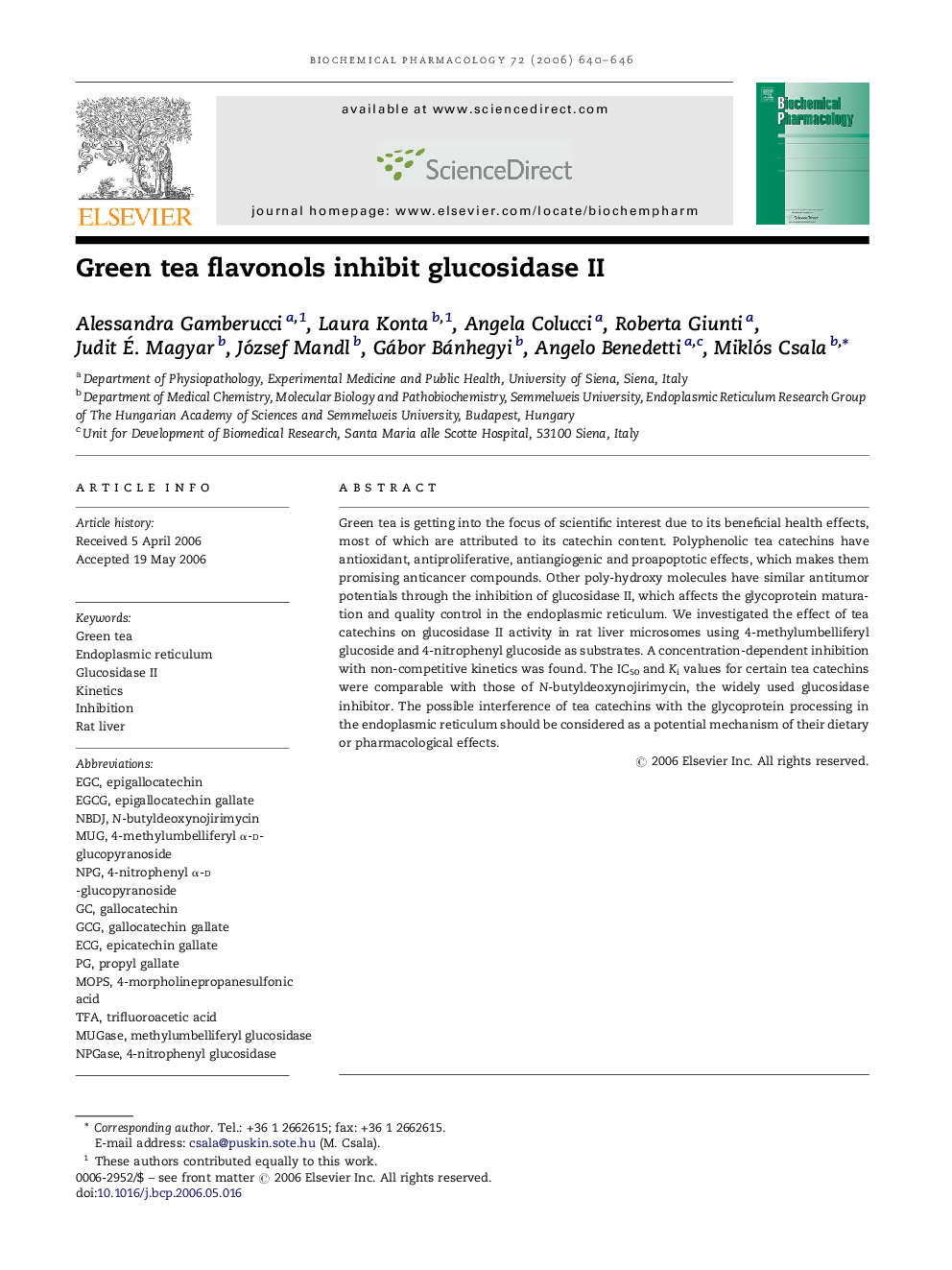| Article ID | Journal | Published Year | Pages | File Type |
|---|---|---|---|---|
| 2515796 | Biochemical Pharmacology | 2006 | 7 Pages |
Green tea is getting into the focus of scientific interest due to its beneficial health effects, most of which are attributed to its catechin content. Polyphenolic tea catechins have antioxidant, antiproliferative, antiangiogenic and proapoptotic effects, which makes them promising anticancer compounds. Other poly-hydroxy molecules have similar antitumor potentials through the inhibition of glucosidase II, which affects the glycoprotein maturation and quality control in the endoplasmic reticulum. We investigated the effect of tea catechins on glucosidase II activity in rat liver microsomes using 4-methylumbelliferyl glucoside and 4-nitrophenyl glucoside as substrates. A concentration-dependent inhibition with non-competitive kinetics was found. The IC50 and Ki values for certain tea catechins were comparable with those of N-butyldeoxynojirimycin, the widely used glucosidase inhibitor. The possible interference of tea catechins with the glycoprotein processing in the endoplasmic reticulum should be considered as a potential mechanism of their dietary or pharmacological effects.
